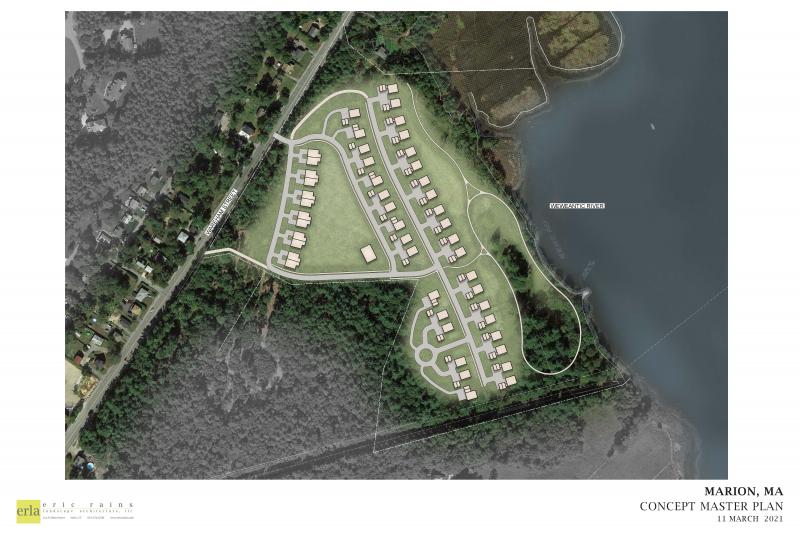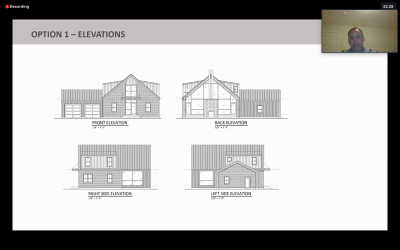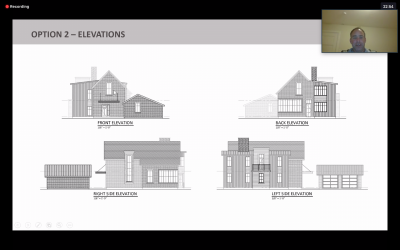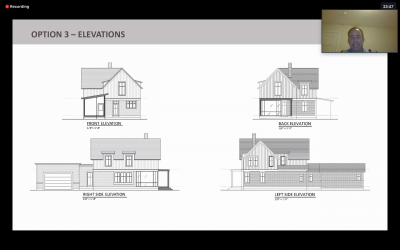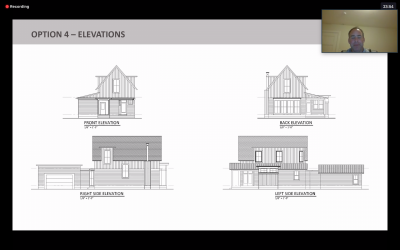Developers eye Marion waterfront for 48-unit housing project
MARION — Developers Matthew Zuker and Armando Petruzziello have a vision for a new housing project on Wareham Road.
The pair are eyeing a plot of land just west of the Marion-Wareham bridge for a 48-unit waterfront housing development adjacent to the proposed 96-unit Heron Cove project.
The development would have cottages and townhouses targeted at those 55-and-up, or who are looking for a second home. There would be no affordable housing included in the development, which would feature walking trails and a clubhouse.
Units in the development would range from around 1,800 to 2,800 square feet, some of which would be waterfront properties.
Zuker said he and Petruziello designed the development “to fit in with the nature of Marion.”
But before any plans can be approved, the pair have to get the plot of land at 78 Wareham Road rezoned.
Right now, the plot is zoned for single-family housing units. The developers will have to get a zoning change approved at Town Meeting in May to rezone the property for multi-family units.
Under Marion’s current zoning bylaws, that would allow the developers to build up to 12 units per acre on the property, though the Marion Planning Board is working to change the bylaws to allow only six units per acre.
Zuker and Petruziello said they have no plans to go beyond 48 units at the property — just under two units per acre. They said they’d also be open to an agreement with the town that would restrict the amount of housing they can build on the property.
Zuker added that the density of housing on the property wouldn’t be much higher than is allowed under its current zoning classification, and that he looks at developments “like they’re partnerships with the town.”
“It really is in conformance in keeping with the feel of Marion,” the developers’ lawyer Patricia McArdle said.
The developers said that they’re looking to break ground on the project by the end of the year, if the zoning change is approved.
But before construction can begin, the developers will have to get approval from the Planning Board.
Zuker and McArdle appeared before the board at a March 15 meeting, where they described plans for the site and showed concept designs for some of the units.
Zuker said the units were designed to have “a very traditional, more New England feel” in the front, with some more modern features at the back of the units.
Board member and Selectman Norm Hills noted that the units would have to follow the town’s design guidance, a restriction of which Zuker said he was not aware.
Hills added that, like the Heron Cove development, Zuker would have to figure out how to hook the community up to Marion’s water and sewer system.
“You’re gonna have to be on sewer — and right now, we’re working on sewer with another development over there,” Hills said.
Zuker said he’s been talking with the owner of the Heron Cove property, though, and that he’s aware of the setup issues the development may face.
If the proposed zoning change appears at Town Meeting, the vote will have to be solely on the zoning change — and not be contingent on any agreement over how many units can be developed at the property.
That means that developers and the town would have to make an agreement on unit restrictions after the zoning change, leaving room for a far more dense development to be legally built on the property.
“As conservative as that sounds, that’s just the way it is,” Town Counsel Jon Witten said of the process.
Under its current zoning classification, 14 single-family units can be built. If the zoning change is approved, developers can build over 300 units on the property.
Board member Andrew Daniel suggested the developers might explore the possibility of building 14 higher-end homes instead of the 48-units, which would begin pricing around $600,000.
“We try to look at it outside of zoning for second and make the best development for the site,” Zuker responded.
Daniel also suggested Zuker look into middle-income housing, for Marion residents like firemen and Department of Public Works workers who may want to live in town, but can’t afford it.
“I’ll look into that and see if that’s possible,” Zuker said.



